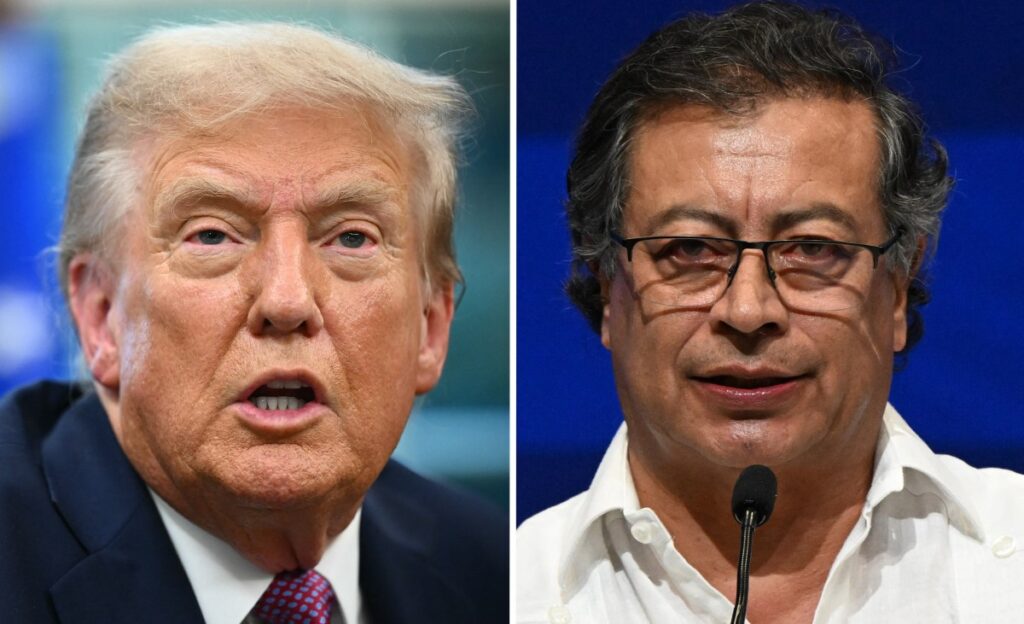During a recent preparatory meeting for the COP30 climate summit, Colombian President Gustavo Petro delivered an angry tirade against President Donald Trump and his policy in Latin America. Trump, Petro said, was “literally against mankind” for refusing to attend the conference. The Trump administration’s immigration policies were akin to what the Nazis would have done, he said. To top it off, Petro blasted the Trump administration’s boat strikes in the Southern Caribbean, which he claimed were killing “poor young people who are not drug traffickers, but employees of drug traffickers or sometimes fishermen” rather than big-time drug traffickers.
The U.S.’ relationship with Colombia, traditionally its closest ally in South America, is in trouble.
The tense ties between Trump and Petro started immediately after the former took the oath of office in January. During Trump’s first week, Petro refused to accept flights of Colombian migrants deported from the United States. Trump pounced, threatening to enact economic sanctions on Colombia, including 25 percent tariffs on all Colombian goods, if Bogotá didn’t relent. Petro, sensing the financial calamity that would have ensued, backed down.
Relations have only gotten worse with time. Trump and Petro are throwing rhetorical arrows at each other. In September, the U.S. State Department made a determination that Colombia “failed demonstrably” during the previous year to meet its anti-narcotics obligations. In October, Trump called Petro an “illegal drug dealer,” declared a halt to all U.S. assistance to Colombia, sanctioned the Colombian president and recently went so far as to publicly flirt with bombing cocaine labs inside Colombia’s borders.
Petro hasn’t taken any of this lying down. In anything, he’s chosen to pour gasoline on the fire. During the U.N. General Assembly meetings in New York, the Colombian president participated in a pro-Palestinian protest and urged U.S. soldiers to disobey Trump’s orders. Trump revoked Petro’s visa in response. Just as Trump has slung verbal mud at Petro, Petro has returned the favor, categorizing the U.S. strikes on alleged drug-carrying boats in the Caribbean and East Pacific as nothing short of murder. Last week, Colombia suspended intelligence sharing with Washington until those strikes stopped. To add insult to injury, Petro recently sat down for an interview with NBC News and described Trump as a “barbarian” perpetrating crimes against humanity by killing innocent fisherman who have been extorted or threatened into participating in the drug trade.
What is driving the animus? Policy, of course, is at the forefront. The Trump administration has made the calculation that waging a literal war on drugs against cartels and traffickers in Latin America is the only way to scare them into stopping their activity. In the White House’s mind, the old paradigm of deploying the U.S. Coast Guard to confiscate drugs on the high seas is not enough of a deterrent.
“What will stop [the traffickers] is when you blow them up, when you get rid of them,” Secretary of State Marco Rubio told reporters in early September. Since then, the United States has destroyed 19 boats, killing more than 70 people.
Petro’s view is the polar opposite of Trump’s—not only is military force unlikely to stop drug traffickers from practicing their craft, but the whole notion of killing people off another country’s coast without due process is both immoral and illegal. He’s not the only head-of-state that feels this way; the United Kingdom reportedly cut some intelligence sharing with Washington in the Southern Caribbean over fear the information might be used by the Americans to kill rather than interdict. France, too, views U.S. military activity in the region as contrary to international law.
The difference with Petro, however, is that he’s elevating his entire anti-Trump campaign into a cause célèbre and doing it in the most obnoxious way possible. This isn’t a surprise for those who have monitored Petro’s rise. The Colombian president is an avowed, proud, die-hard leftist who was a member of the M-19 guerrilla group in his youth and has long staked his entire political career on challenging Colombia’s conservative elite. In fact, leave the politics aside and Petro is remarkably similar to Trump in demeanor: unapologetically brash, unpolished, committed to his political base and nationalist to the core.
If there weren’t any costs associated with the ongoing war of words, then perhaps we could chalk it all up to entertainment. But this isn’t the case. The longer the mudslinging goes on, the more difficult it will be for the United States and Colombia to turn the relationship around. The institutional ties that have formed, solidified and grown stronger over a span of more than three decades will endure once Petro leaves office next year. But in the meantime, Bogotá’s severing of counter-narcotics cooperation and Washington’s decision to ostracize Colombia and place the country in the same league as Nicolás Maduro’s Venezuela will do real damage to the counter-narcotics fight both states claim is a vital interest. Colombia is far and away the most valuable intelligence partner for Washington in Latin America, providing 80 percent of actionable information used by the U.S. Coast Guard and Navy to interdict drug shipments in the Caribbean. No other state comes close.
The sooner this embarrassing playground fight ends, the better it is for everybody.
Daniel R. DePetris is a fellow at Defense Priorities and a syndicated foreign affairs columnist at the Chicago Tribune.
The views expressed in this article are the writer’s own.
Read the full article here



